Many of us are concerned about toxins in the environment, from VOCs in paint to pesticides in our food to additives in cosmetics, so it’s no surprise that what we use to clean our homes is high on our clean living agenda.
We want effective formulations that aren’t harmful to our health or the planet, and essential oils are perfect for this. Whether you use them in store-bought eco cleaning products or in your own natural cleaning hacks, essential oils strike just the right balance of natural and functional, and they smell amazing too.
We spoke to the experts to find out which essential oils you should have in your cleaning kit, plus recipe recommendations for antibacterial sprays, grease removers, and more, to help you discover the secrets of using essential oils for home cleaning.
Use essential oils for cleaning
Essential oils are concentrated compounds from plants that have been extracted through methods such as distillation or cold pressing. The resulting oil retains the natural “essence” of the plant, which gives the oil its beneficial properties.
in progress the study “Essential oils have been shown to have effective antiseptic properties against viruses and bacteria,” explains Yasmin Sharp, aromatherapy expert at Nikra. “Mixing a few drops of essential oil with a spray bottle of other liquids is a natural, safe and non-toxic way to clean your home.”
Before you start using them in your home, remember that essential oils should never be used in their pure form, “always dilute them before use, and be careful with painted wooden surfaces.” “Test any essential oil cleaner by doing a patch test in an inconspicuous area before use,” advises Joe Kellett, essential oil expert at Tisserand Aromatherapy, who makes their own Spring Clean essential oil toolkit.
1. Lemon oil
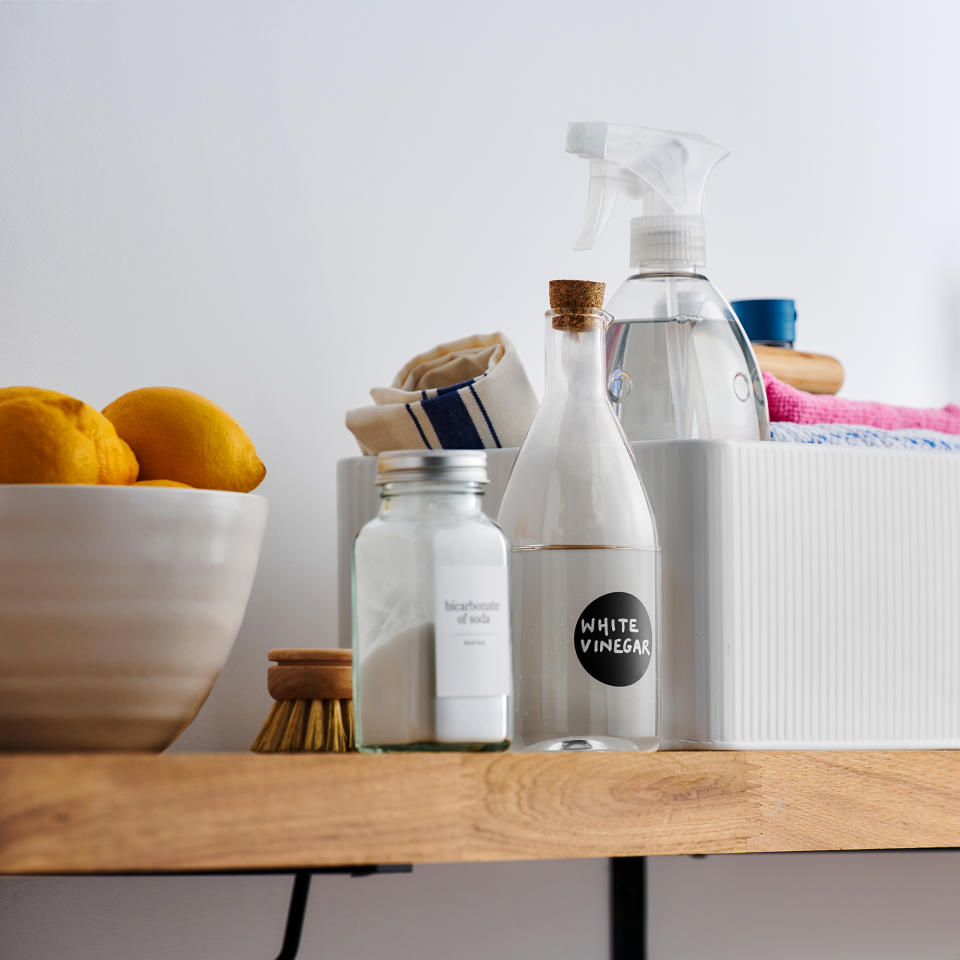

If you can clean your oven with lemons, it stands to reason that lemon essential oil is an effective way to keep your home clean.
“Lemon oil offers a clean, citrus scent without any harsh chemicals. Its powerful hygienic properties and ability to attack harmful microorganisms mean it’s used to eliminate bacteria and fungus in the home,” says Yasmin Sharp of Nikra.
“Lemon oil has an acidic root that makes it an all-purpose cleaner for the kitchen and bathroom, leaving surfaces sparkling clean. Lemon oil can also be used to clean wood, windows and carpets.”
To clean surfaces, Yasmin recommends mixing 2 tablespoons of water and 5-6 drops of lemon oil in a spray bottle, applying it to a cloth, and scrubbing the surface to clean.
2. Eucalyptus oil
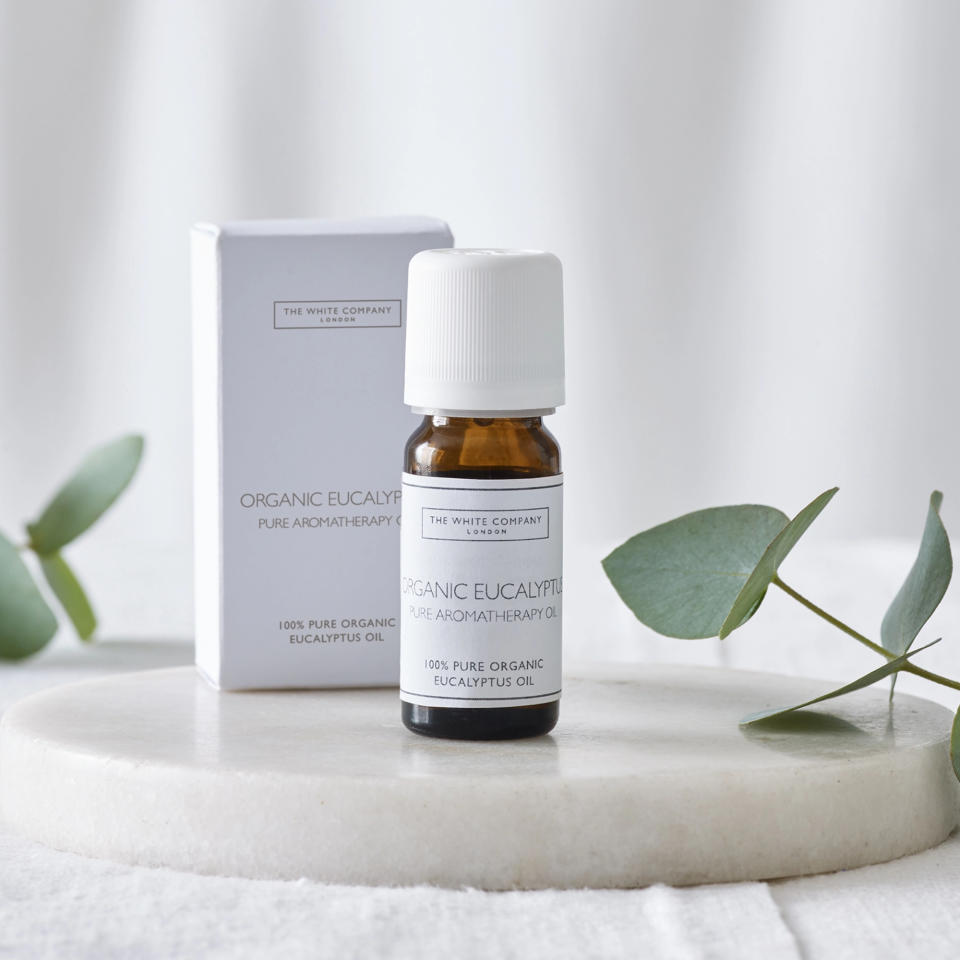

“Eucalyptus oil is a great essential oil to use around the home as it has powerful antiseptic properties with a clean, fresh scent,” says Joe Kellett of Tisserand Aromatherapy. “It’s great for removing grease stains, so it’s a great addition to your kitchen spring clean – it also kills germs on surfaces!”
Eucalyptus has another unexpected property that makes it a great essential oil to use in the home: it repels mosquitoes. If you’re lucky enough to have trees in your garden, try hanging a few eucalyptus branches in your shower; the heat and steam will release the essential oils from the leaves, filling the room with the scent and helping you breathe easier.
3. Peppermint oil
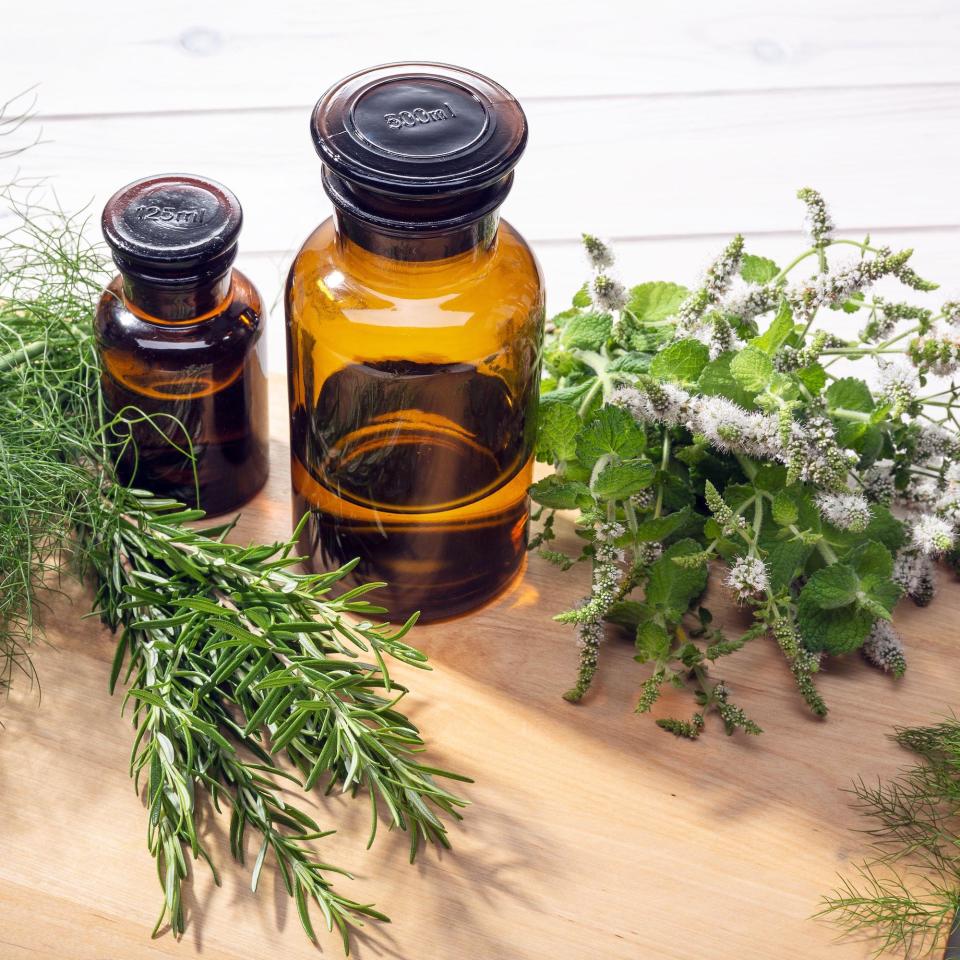

Peppermint essential oil smells great in the morning, but it’s also a great natural disinfectant for sanitizing surfaces.
“Peppermint has hygienic oils that have antibacterial and antifungal properties,” says Yasmin Sharp of Nikra. “Showers are a breeding ground for bacteria. To make your daily shower spray, mix 1/4 cup rubbing alcohol, 3/4 cup water, and 10 drops peppermint oil in a spray bottle. Shake well, then spray and do not rinse.”
Do you hate spiders? Well, here’s a bonus for you: “Studies have shown that peppermint essential oil is a natural spider repellent,” says Yasmin.
4. Tea Tree Essential Oil
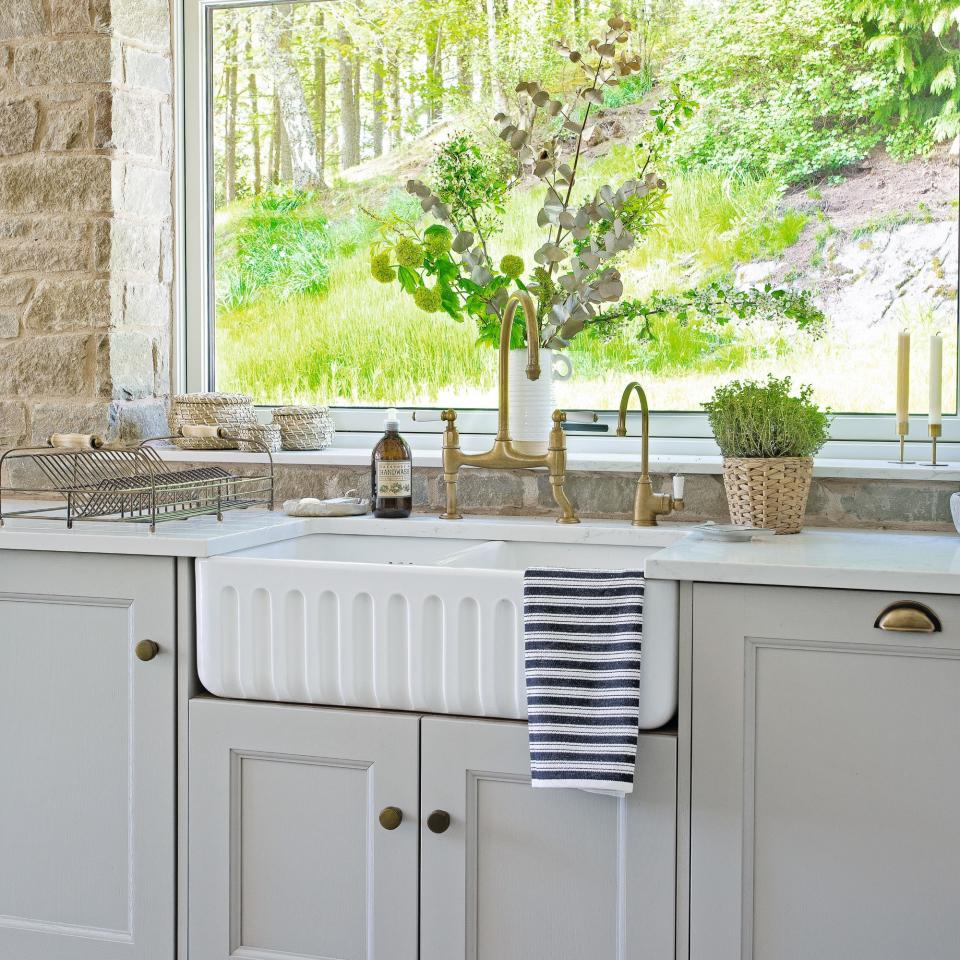

You probably already have tea tree oil in your bathroom cupboard — it’s known for its antiseptic properties and is often used to treat pimples and cold sores — but its insect repellent properties can also be useful around the home.
“Tea tree is well known for its ability to fight off infections,” explains Yasmin Sharp of Nikra, “and is perfect for everyday cleaning around the home, particularly effective at eliminating musty odours in kitchens, bathrooms and lofts.”
“Kitchen sinks attract mold, bacteria, and fungus. Before scrubbing the sink, add two to three drops of tea tree oil to one cup of baking soda. Focus on the drain and gutters to eliminate any mold growth.”
5. Grapefruit essential oil
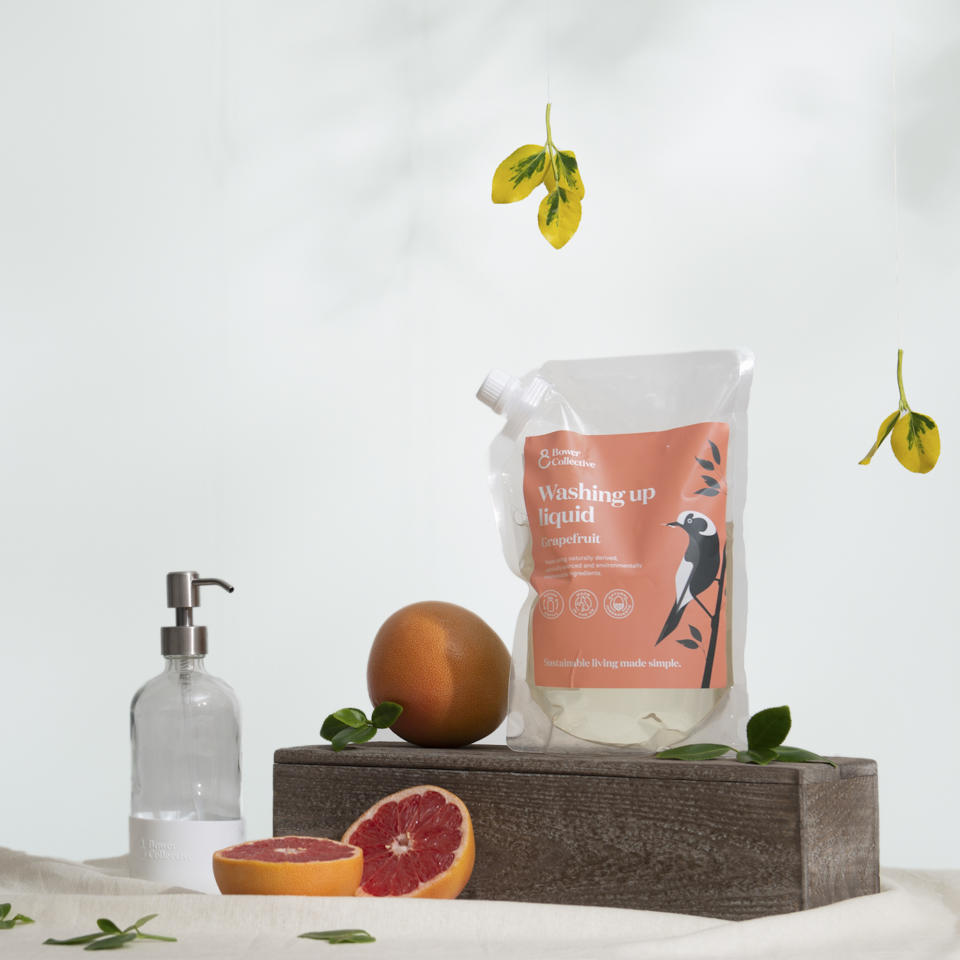

Citrus essential oils are naturally invigorating, making them a great choice for cleaning rooms where you want to be active, and grapefruit essential oil is particularly good for cleaning kitchen surfaces because of its association with food: its grapefruit scent will complement rather than clash with cooking aromas.
“Like other citrus essential oils, the scent of grapefruit evokes feelings of sunshine and happiness,” says Joe Kellett of Tisserand Aromatherapy. “Not only is it antibacterial and a great cleaning agent, but the scent also motivates you to shake off the winter blues and welcome spring!”
6. Basil oil
Basil in your kitchen is not just good for sprinkling on your pasta: its antibacterial properties make it perfect for cleaning kitchen tools and equipment.
‘A study “We’ve found that using basil oil can help reduce bacteria and food-borne pathogens, keeping the food we eat safe. It also helps remove germs from surfaces and purify the air,” says Yasmin Sharp from Nikra.
“Sprinkling a drop of diluted basil oil into a basin when washing fresh produce may help reduce the risk of harmful microorganisms and bacteria.”
7. Lavender essential oil
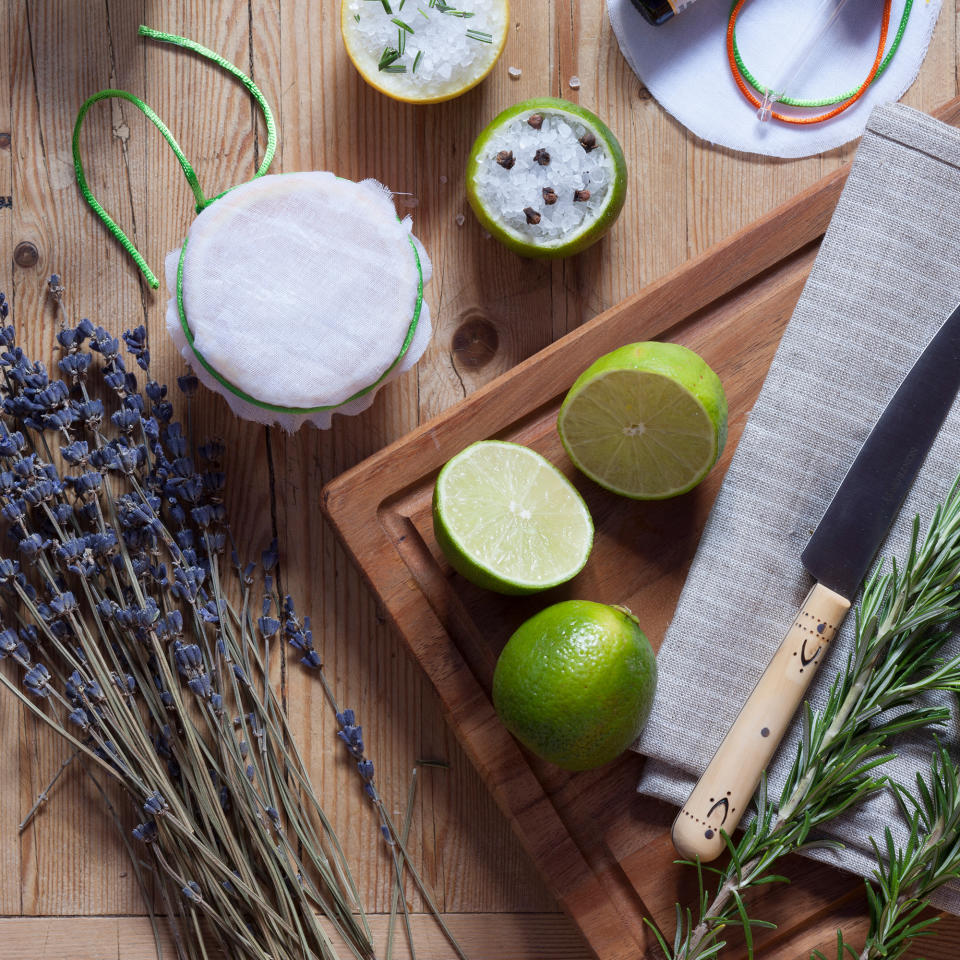

Lavender is primarily associated with tranquility and sleep, making it one of the best scents for soothing your mind, but this fragrant essential oil is also effective in washing.
“Lavender essential oil helps prevent mildew growth on clothes and adds a floral scent. Acting as a disinfectant and deodorizer, lavender is a gentle all-purpose cleaner,” says Yasmin Sharp of Nicla, who recommends using lavender as a disinfectant when washing clothes.
Add 2-3 drops of lavender oil to your regular detergent or fabric softener before putting it in the washing machine.
8. Orange essential oil
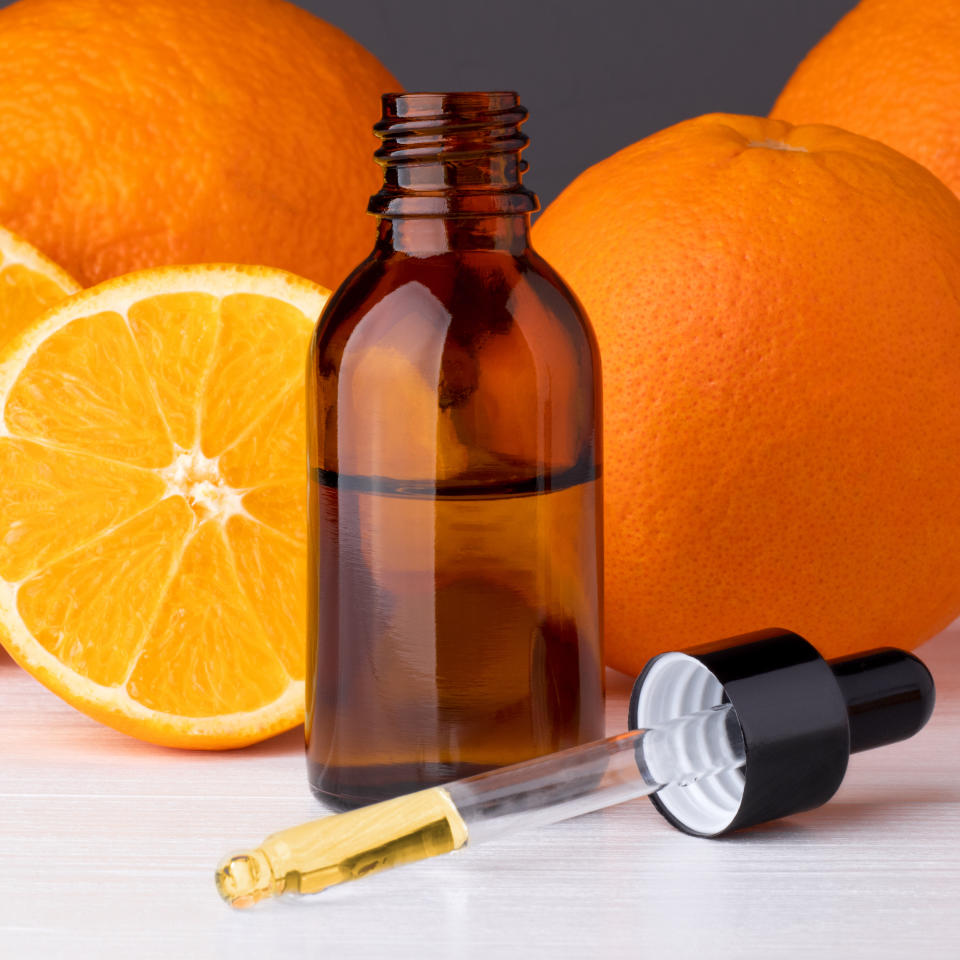

According to Joe Kellett of Tisserand Aromatherapy, the sweet, bright scent of orange brings about feelings of happiness and joy, making it a perfect addition for those thinking about how to clean when they’re feeling overwhelmed.
“Orange essential oil is also recognized to have antibacterial properties,” says Joe, “and when added to vegetable oils, it’s great for polishing wooden surfaces and floors.”
5 Homemade Natural Cleansers
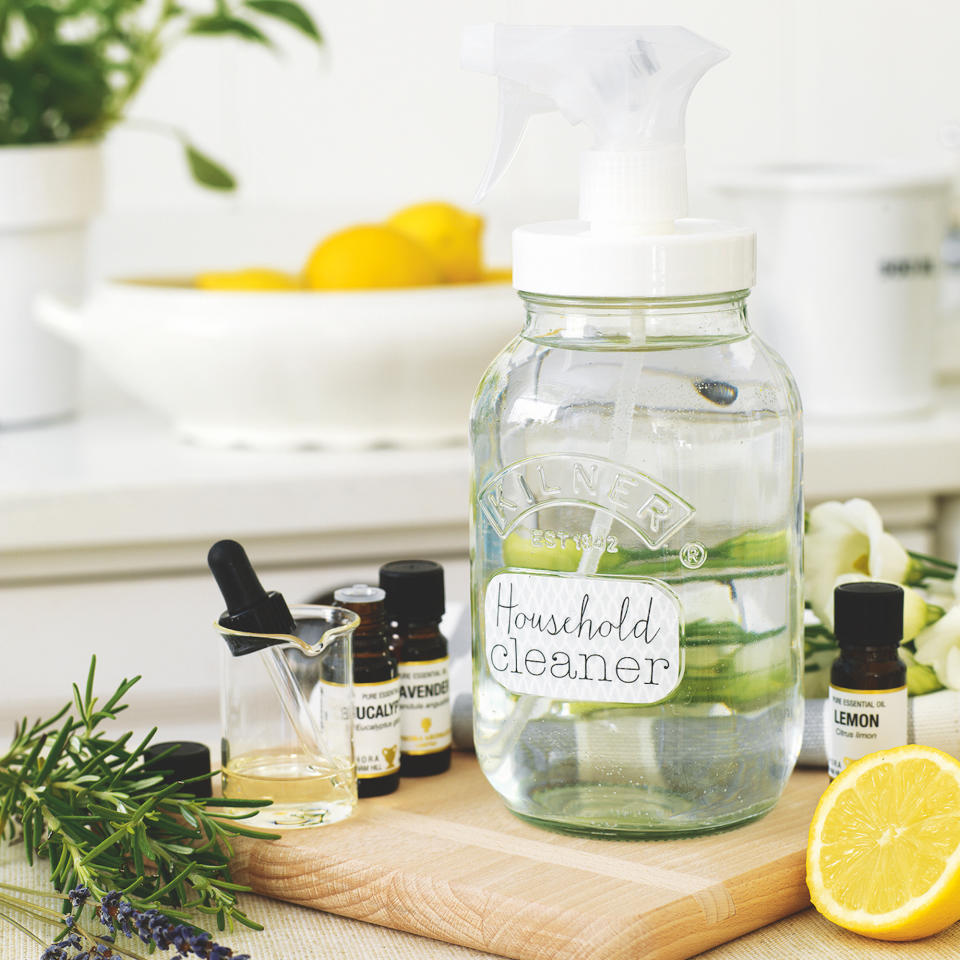

Jo Kellett, essential oil expert at Tisserand Aromatherapy, shares a simple recipe for making essential oil cleaning products at home.
Multi-purpose Surface Spray
Add 10 drops of tea tree, lemon, or grapefruit essential oil to 250ml white vinegar and 250ml water in a spray bottle. Apply to kitchen countertops, bathroom sinks, or tile floors. Shake well before use.
Furniture polish
Add 10 drops of orange essential oil to 100ml of an oil blend, such as sweet almond oil. Mix well and use a polishing cloth to wipe your furniture. For an extra shine, polish with another soft cloth.
Floor cleaner
Add 9 drops of lemon and 6 drops of eucalyptus essential oil to 1/4 cup of white vinegar and 1 tablespoon of castile soap. Mix in a bucket of warm water and start mopping.
Carpet and rug deodorizer
Mix 10 drops of grapefruit essential oil with 25g of baking soda in a bowl. Sprinkle the mixture on your carpets or rugs and leave it for 10-15 minutes before vacuuming.
Where to buy essential oils
When buying essential oils, remember that not all are created equal. Some indicators of a good quality essential oil include being sold in a colored glass bottle, having the Latin name of the plant on it, or having the country of origin listed.

